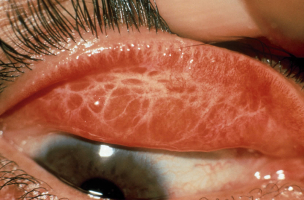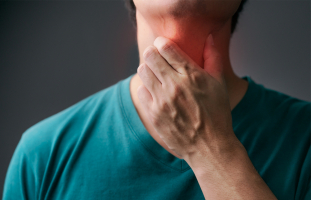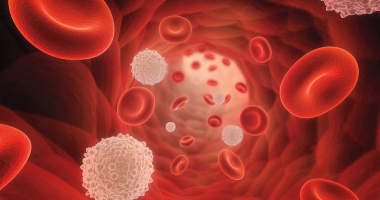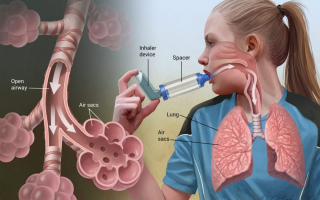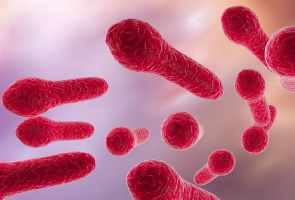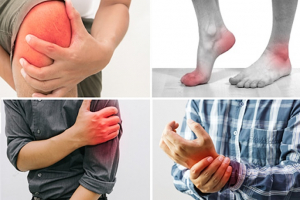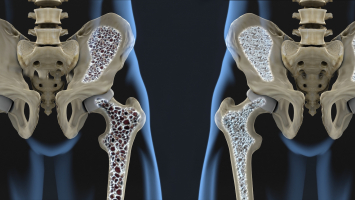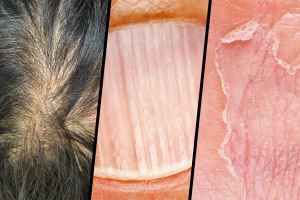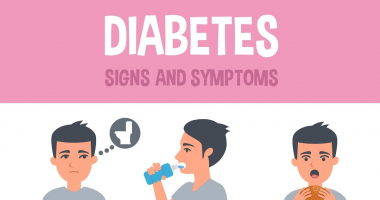Top 10 Signs and Symptoms of Too Much Stress
Stress is described as a condition of mental or emotional tension brought on by adversity. Most individuals experience stress at some time in their lives. ... read more...According to one research, 33% of respondents reported significant levels of felt stress. The disease is accompanied by a slew of physical and mental symptoms. This article will look at the most frequent stress indicators and symptoms.
-
Acne is one of the most obvious ways stress expresses itself. When some people are worried, they tend to touch their faces more frequently. This can spread germs and lead to acne formation. Several studies have also found that acne is linked to greater levels of stress. In one study, acne severity was assessed in 22 persons before and during an exam. Stress levels increased as a result of the exam and were linked to worse acne severity.
Another research of 94 youths discovered that higher stress levels were linked to worse acne, particularly in guys. These studies suggest a correlation but do not take other aspects into consideration. More study is needed to investigate the relationship between acne and stress. Aside from stress, other possible causes of acne include hormonal changes, germs, increased oil production, and clogged pores.

Acne 
Acne -
Many studies have revealed that stress can contribute to headaches, which are pains in the head or neck. A stressful incident preceded the onset of chronic headaches in around 45% of instances, according to one research of 267 persons with chronic headaches. A bigger study discovered that greater stress intensity was linked to an increase in the number of headache days per month.
Another research polled 150 military service personnel at a headache clinic and discovered that 67% of them said the stress caused their headaches, making it the second most prevalent headache trigger. Lack of sleep, alcohol consumption, and dehydration are also major headache culprits.

Headaches 
Headaches -
Aches and pains are typical problems that can be caused by high levels of stress. One research of 37 teens with sickle cell disease discovered that greater levels of daily stress were connected with higher levels of same-day pain. Other studies have found that elevated levels of the stress hormone cortisol are linked to chronic pain. One research, for example, compared 16 persons with persistent back pain to a control group. It was discovered that people suffering from chronic pain had greater cortisol levels.
Another study discovered that persons suffering from chronic pain had greater amounts of cortisol in their hair, indicating persistent stress. Keep in mind that while these studies suggest a relationship, they do not take into account other factors that may be at play. Furthermore, it's uncertain if stress causes chronic pain or vice versa, or whether both are caused by another reason. Aside from stress, there are other additional variables that might lead to chronic pain, such as aging, traumas, bad posture, and nerve damage.
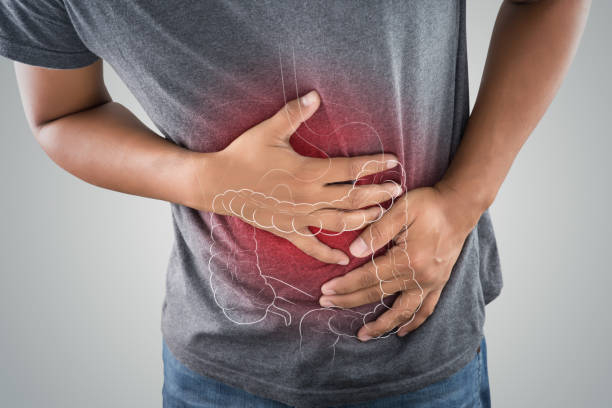
Chronic Pain 
Chronic Pain -
If you find yourself frequently battling the sniffles, stress might be to cause. Stress can weaken your immune system and make you more susceptible to diseases. In one trial, 61 elderly people were given the flu vaccination. Chronic stressors had a diminished immunological response to the vaccination, showing that stress may be linked to lower immunity. In another research, 235 people were divided into two groups based on their stress levels: high or low. Over the course of six months, individuals in the high-stress group had 70% more respiratory infections and roughly 61% more days of symptoms than those in the low-stress group.
Similarly, one meta-analysis of 27 studies found that stress was associated with an increased risk of acquiring an upper respiratory infection. The more human study is needed to understand the complicated relationship between stress and immunity. When it comes to immunological function, however, stress is only one component of the jigsaw. A reduced immune system can also be caused by a poor diet, lack of physical exercise, and immunodeficiency illnesses such as leukemia and multiple myeloma.

Frequent Sickness 
Frequent Sickness -
Prolonged stress can also result in chronic exhaustion and diminished energy levels. One research of 2,483 adults, for example, discovered that weariness was closely connected with greater stress levels. Stress can also interfere with sleep and induce insomnia, which can contribute to fatigue. According to one small study, higher levels of work-related stress were associated with increased drowsiness and restlessness before bedtime. Another research of 2,316 people found that having more stressful situations was strongly connected with an increased incidence of sleeplessness.
These studies suggest a link, but they don't take into consideration other factors that may have had a role. More study is needed to discover whether stress might directly induce low energy levels. Dehydration, low blood sugar, a poor diet, or underactive thyroid are all possible causes of low energy levels.

Decreased Energy and Insomnia 
Decreased Energy and Insomnia -
During stressful times, many people notice changes in their sex urges. One short research assessed 30 women's stress levels and then analyzed their arousal while viewing an erotic video. Those with high levels of chronic stress had lower levels of arousal than those with lower stress levels. Another research, which included 103 women, discovered that higher levels of stress were linked to decreased levels of sexual engagement and pleasure.
Similar research included 339 medical residents. It was discovered that high levels of stress have a detrimental influence on sexual desire, arousal, and pleasure. Other probable reasons for libido variations include hormone changes, exhaustion, and psychological factors.

Changes in Libido 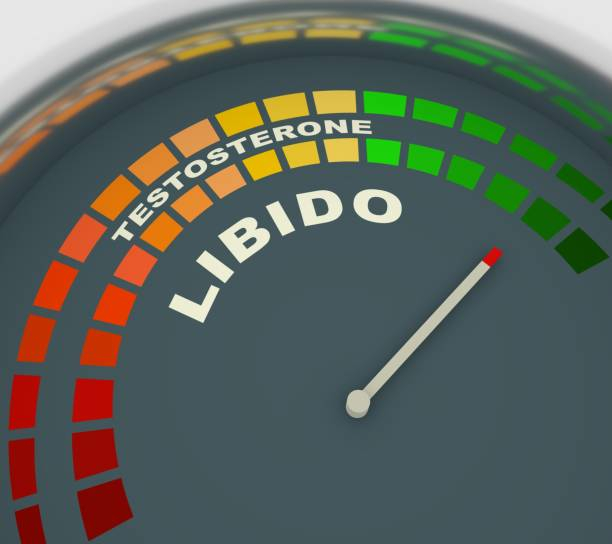
Changes in Libido -
High amounts of stress can also induce digestive issues such as diarrhea and constipation. One research, for example, examined 2,699 children and discovered that exposure to stressful situations was connected with an increased incidence of constipation. Those suffering from digestive diseases such as irritable bowel syndrome (IBS) or inflammatory bowel disease may be particularly vulnerable to stress (IBD). These symptoms include stomach discomfort, bloating, diarrhea, and constipation. Higher daily stress levels were linked to greater digestive discomfort in one research of 181 women with IBS.
Furthermore, a meta-analysis of 18 research on the function of stress in inflammatory bowel disease indicated that 72% of studies discovered a link between stress and digestive symptoms. Although these studies demonstrate a link, additional research is needed to determine how stress affects the digestive tract. Also, bear in mind that many other variables, such as food, dehydration, physical activity levels, illness, or certain drugs, can trigger stomach troubles.

Digestive Issues 
Digestive Issues -
Changes in appetite are frequent during stressful periods. When you are anxious, you may find yourself having no appetite or raiding the refrigerator in the middle of the night. According to one research of college students, 81% reported changes in appetite when they were stressed. 62% reported an increase in appetite, while 38% reported a reduction. Stress was linked to behaviors such as eating without being hungry in a study of 129 adults.
During stressful times, these variations in appetite may also induce weight swings. A research of 1,355 persons, for example, discovered that stress was connected with weight growth among overweight adults. While these studies demonstrate a link between stress and changes in appetite or weight, additional research is needed to determine whether other variables are at play. Other factors that may contribute to appetite fluctuations include the use of certain medicines or treatments, hormonal alterations, and psychological problems.

Appetite Changes 
Appetite Changes -
According to some research, persistent stress may lead to the development of depression. One research of 816 women with serious depression found that both acute and chronic stress were strongly related to the development of depression. Another research of 240 teenagers discovered that high levels of stress were connected with increased levels of depressive symptoms. Furthermore, in a study of 38 patients with non-chronic major depression, stressful life events were found to be substantially related to depressive episodes.
Remember that while these studies demonstrate a correlation, they do not prove that stress causes depression. More study on the impact of stress on the development of depression is required. Other potential reasons for depression, aside from stress, include family history, hormone levels, environmental variables, and even specific drugs.

Depression 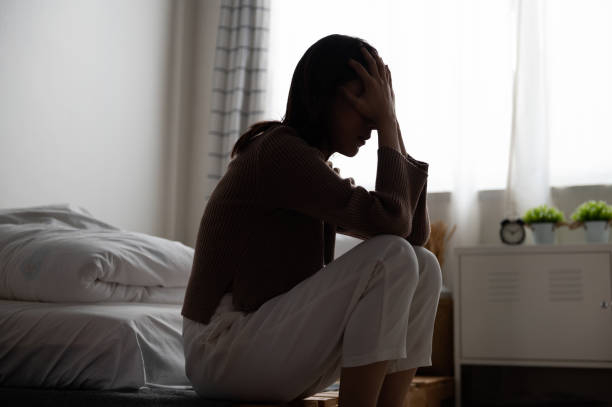
Depression -
High stress can also cause a rapid pulse and an elevated heart rate. One research compared heart rate reactivity to stressful and non-stressful events and discovered that heart rate was considerably greater under stressful settings. Another research of 133 teens discovered that performing a demanding activity increased heart rate.
A similar study indicated that exposing 87 students to a stressful activity increased heart rate and blood pressure. Surprisingly, playing soothing music during the work helped to avoid these alterations. High blood pressure, thyroid illness, certain cardiac problems, and excessive consumption of caffeinated or alcoholic beverages can all produce a fast pulse.

Rapid Heartbeat 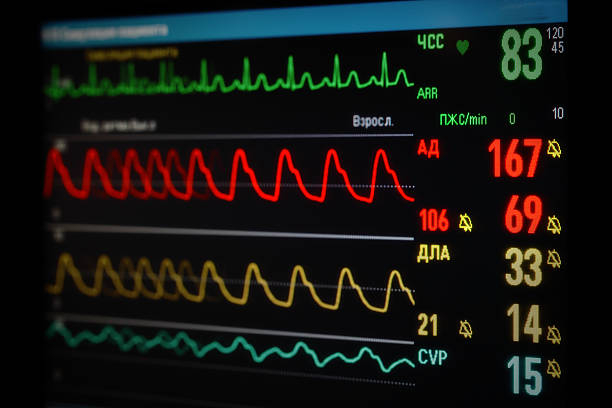
Rapid Heartbeat













